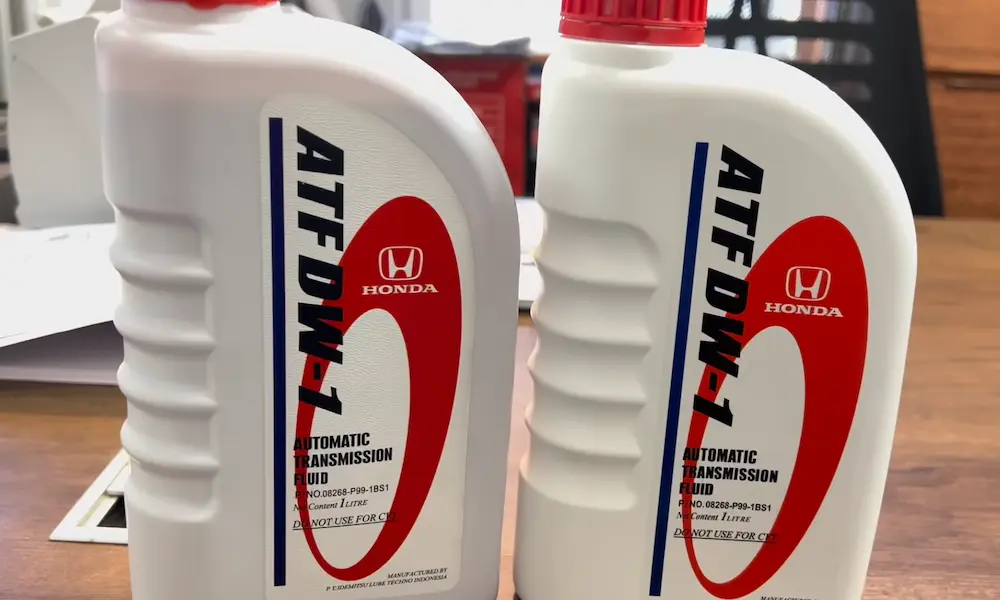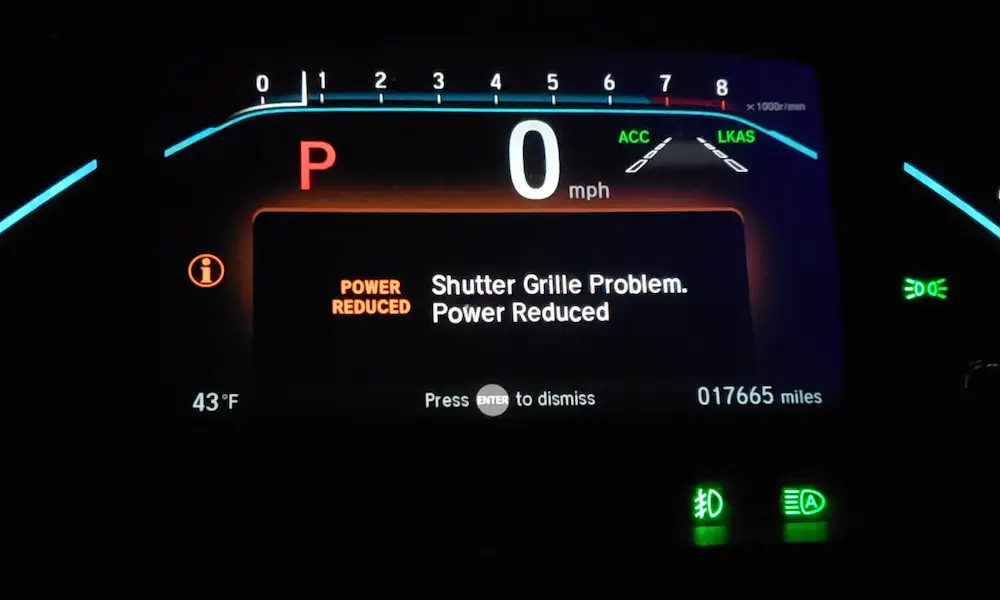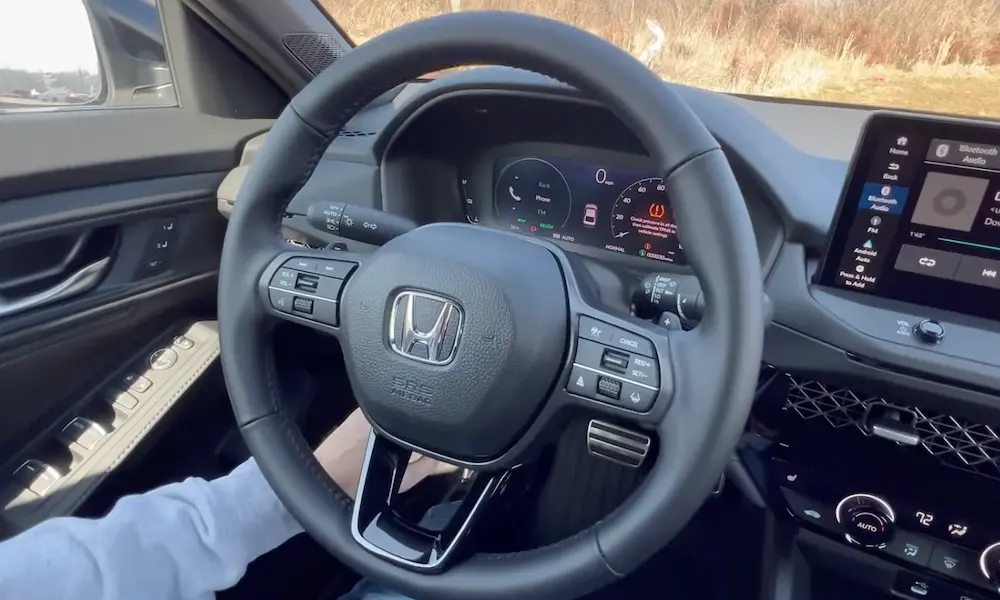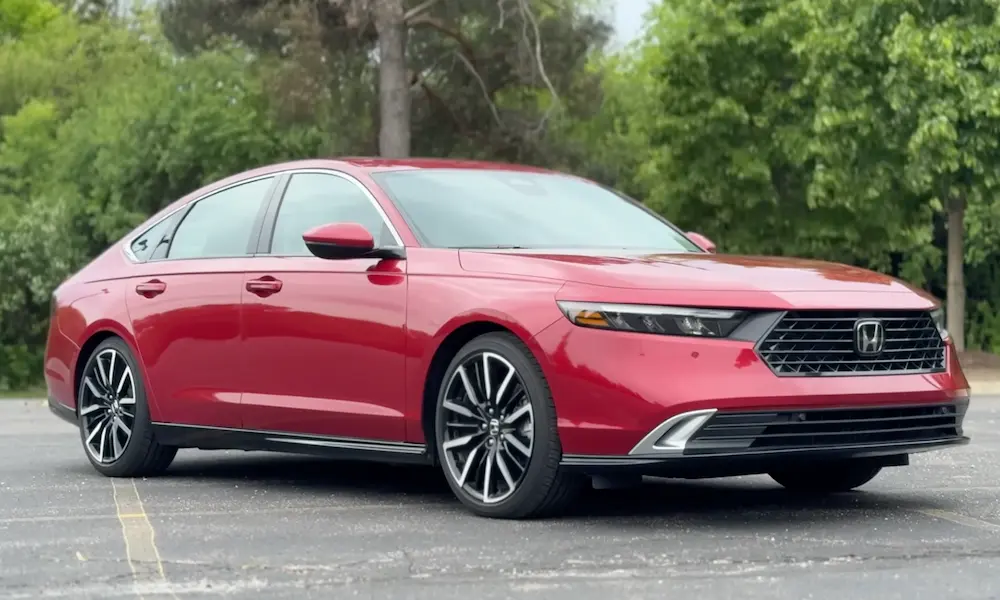Experiencing transmission problems with your Honda Civic can be frustrating. The good news is that understanding the common issues in automatic transmissions and CVTs can help you find solutions fast. Whether you’re dealing with odd noises or gear shifting troubles, it’s crucial to know what to look for. Stay with us to explore practical tips and insights that could save you time and costly repairs.
Common Problems and Symptoms
Honda Civic drivers often experience various transmission problems. These issues can affect your driving comfort and the vehicle’s performance. Noticing these problems early can help you maintain your car better and avoid costly repairs.
Slipping Gears
If your Honda Civic seems to change gears on its own or falls out of gear while driving, you might be dealing with slipping gears. This problem is not just annoying; it’s dangerous because it affects your control over the vehicle. Slipping typically occurs due to worn-out transmission components or low transmission fluid.
You might notice a sudden increase in engine noise or feel a loss of power. Addressing slipping gears promptly can make your drive safer and more reliable.
Delayed Gear Engagement
You may experience delayed gear engagement when you shift into drive or reverse and the car hesitates before moving. This delay can be unsettling, especially in situations where quick responses are crucial. Causes can include worn-out gears or a malfunctioning solenoid.
In some cases, this problem stems from low transmission fluid levels or the wrong type of fluid being used. Ensuring your Civic has the proper fluid can often prevent or resolve this issue. Regular checks can save you time and stress.
Jerks and Shudders During Acceleration
Feeling jerks or shudders during acceleration is a common Honda Civic transmission issue. This problem can make your car’s performance feel rough and unpredictable. It often happens because of fluid leaks, which can lead to inadequate lubrication of the transmission parts.
To prevent this uncomfortable sensation, keeping an eye on fluid levels and fixing leaks as soon as they’re noticed can help improve your car’s performance. Regular maintenance can ensure a smoother ride and better handling.
Unusual Noises and Warning Signs
Noises like thumps or clunks when changing gears can be a warning sign for transmission troubles. Other signs include a persistent check engine light or a flashing “D” light on your dashboard. These sounds and indicators usually suggest that something in the transmission system needs attention.
Ignoring these symptoms can lead to bigger issues, such as more significant damage inside the transmission. Staying alert to these sounds and lights lets you catch problems early, potentially saving on repairs. Always consult your vehicle manual for the proper response to these alerts.
Maintenance and Care
Taking care of your Honda Civic’s transmission involves regular checks, timely fluid changes, and following essential maintenance tips. Proper maintenance can prevent common transmission issues and prolong the lifespan of your vehicle.
Regular Transmission Fluid Checks
Checking your transmission fluid is crucial for your Honda Civic. Low transmission fluid can cause symptoms like slipping or jerking. To check the fluid, make sure your car is on level ground and the engine is warm. Use the dipstick, usually marked in red, to assess fluid levels and condition. Good fluid is typically pinkish or red and should not smell burnt. If your fluid is low or needs replacement, consult with a Honda dealership for the best service.
When to Change Your Transmission Fluid
Changing your transmission fluid is essential to keep everything running smoothly. Generally, it’s recommended to conduct a transmission fluid change every 30,000 to 60,000 miles, but this can depend on factors like your driving habits and your Civic model year. Look for signs like unusual noises during shifting or delayed gear engagement. If you’re uncertain about the timing, your car’s manual or a trusted Honda dealership can provide guidance.
Important Maintenance Tips
Besides fluid management, there are other steps to ensure the health of your transmission. Avoid rapid acceleration and hard shifting to reduce stress on the system. Keep the car well-maintained according to recommended service schedules. Regular servicing, including checking for software updates, can help prevent potential problems. If you notice anything unusual, don’t ignore it. Having a mechanic inspect your car at the first sign of trouble can save you time and money down the road.
Repairing Your Transmission
When you’re facing transmission problems with your Honda Civic, it’s crucial to identify the right repairs. For automatic transmissions and CVTs, understanding specific issues like transmission failures and knowing when a rebuild or replacement is necessary can save both time and money.
Common Repairs for Automatic Transmissions
Automatic transmissions can face a range of problems. You might experience slipping gears, delayed shifting, or even a complete transmission failure. These issues often require professional attention. Fluid replacement is a frequent fix, as dirty or low fluid can cause many problems. In some cases, a solenoid replacement might be necessary if the electronic components fail to transmit the right signals.
If you’re covered under a warranty, visiting a Honda dealership can be beneficial. They often handle detailed diagnostics to pinpoint issues and recommend appropriate repairs. It’s also wise to frequently check your transmission fluid for any unusual color or smell, as this can signal potential problems. By staying proactive, you reduce the risk of severe damage.
Solutions for CVT-Related Problems
CVT-related problems require special attention since these transmissions work differently than automatic ones. Common issues include jerking movements, strange noises, or acceleration lag. Routine software updates from a Honda dealership can fix some of these problems, as CVTs rely on software to operate efficiently.
If the transmission starts slipping, it might need a belt adjustment. Some CVT issues are covered under warranty, so checking with your dealer can help ease the financial burden. Regular maintenance checks are vital. They prevent minor issues from escalating into costly repairs. Always be attentive to any unusual behavior and act quickly to get your CVT inspected.
When to Consider Transmission Rebuild or Replacement
At times, more extensive action is needed, especially when repairs no longer suffice. A transmission rebuild involves disassembling the transmission to replace worn-out parts. This is often a cost-effective answer for serious damage when compared to full replacement. Rebuilding can restore the efficiency of your transmission if done correctly.
Replacement might be necessary if your transmission is beyond repair. This option is often more expensive, but it guarantees a fresh start for your vehicle. When considering any of these pathways, consulting with a trusted mechanic or Honda dealer is crucial to weighing the costs against benefits and making the best decision for your Honda Civic.
Additional Considerations
When dealing with Honda Civic transmission problems, several factors can influence your vehicle’s performance and your overall experience. Understanding how these issues impact safety, the role of software, and the financial aspects of repairs can help you make informed decisions.
Impact of Transmission Problems on Vehicle Safety
Transmission issues can affect your safety on the road. Problems like delayed engagement might cause your car to hesitate when shifting gears. This delay can create dangerous situations, especially in traffic or when merging.
Faulty solenoids can lead to unexpected gear changes or jerking movements. If transmission bands wear out, your car may not stay in gear, potentially leading to loss of control.
Regular maintenance and staying alert to any unusual sounds or behavior in your car can help mitigate risks. Addressing these issues promptly is crucial to maintaining safe vehicle operation.
The Role of Software in Transmission Performance
Modern vehicles rely on software to manage transmission operations. This software can impact how smoothly your Honda Civic shifts gears. Updates can improve performance by fixing bugs that cause transmission problems.
Sometimes, issues arise from outdated software, leading to problems like erratic gear shifting or overheating. Keeping your vehicle’s software up to date can help you avoid these complications. Manufacturers often provide updates to enhance performance and reliability.
If you’re experiencing transmission trouble, it’s worth checking with your dealer to see if a software update could solve the problem. This can often be a simpler and cheaper solution than mechanical repairs.
Cost Factors and Budgeting for Repairs
Repairing a transmission can be expensive, with costs varying based on the type of problem. For instance, replacing transmission bands or fixing faulty solenoids can run into hundreds or even thousands of dollars.
It’s important to budget for these potential expenses. Knowing the common issues like delayed engagement and assessing their severity can help you prepare financially.
Consider warranty options or service plans that might cover significant repairs, reducing your out-of-pocket expenses. Staying proactive with maintenance can also prevent major repairs, saving you money in the long run.














